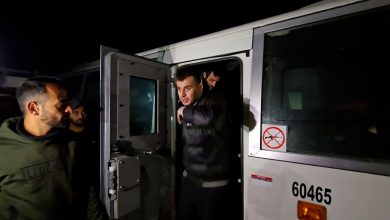The war in Gaza has entered its third week, with its flames consuming thousands of lives, erasing entire neighborhoods from the map of life, and destroying hospitals with wounded children, paramedics, and doctors struggling against the relentless wave of death.
As the crisis deepens within the Palestinian territory, the Israeli army is mobilizing tens of thousands of soldiers on the outskirts of Gaza, preparing for a ground war that the resistance factions are also gearing up for.
Amidst this backdrop, the world anxiously awaits the next round of a destructive war, where power dynamics fluctuate, and the days break the expected norms of conflict between a state’s army and besieged people. Within this complex context, each side appears to possess multiple strengths, along with a local and international context, and formidable challenges that may complicate the option of a ground war.
In the following report, we will outline some of the strengths and weaknesses on the Israeli front and delve into the strengths of the resistance factions in Gaza, led by the Al-Qassam Brigades, the military wing of Hamas. We will also explore potential scenarios for a ground war.
Israel: Western Support and a Desire for Retaliation
Israel is preparing to deploy thousands, perhaps tens of thousands, of its troops into a grueling and lengthy ground war in the Gaza Strip. It does not hide the fact that this endeavor will be tough, arduous, and long-lasting, with substantial and costly losses. However, Israel is determined to capture an image of “victory” from the heart of Gaza, regardless of the costs.
On the other hand, the resistance factions acknowledge their inability to prevent Israeli soldiers and tanks from entering the territory. Still, they vow surprises that the Israeli military did not anticipate. They see the Israeli army’s ground entry into Gaza as an ideal opportunity for their fighters to exact revenge through killings, captures, and setting traps throughout the area.
Looking at the balance of power, Israel, as it prepares for this stage of its war on the besieged Gaza Strip, possesses several key strengths, including:
- A War Government: After months of internal strife and the breakdown of trust among Israeli political factions, and amid growing divisions over judicial reforms proposed by Prime Minister Benjamin Netanyahu and his far-right allies, Israel managed to unify its response to Operation Hurricane of Al-Aqsa. The fear of impending death from Gaza brought these warring factions together.
- Unprecedented Western Support: The Western world is currently rallying like never before to defend Israel and ensure its security. President Joe Biden himself boasted of being the first U.S. president to visit Tel Aviv during a war. Additionally, several U.S. officials, including Biden, Secretary of State Antony Blinken, and Defense Secretary Lloyd Austin, each attended separate meetings of the Israeli Security Cabinet. This coincided with the shift from political support to direct military logistics, with Washington continuing to supply Israel with military equipment, including armored vehicles and tanks, in support of its war on Gaza and possibly paving the way for a ground war.
- Escalating Western Public Opinion: Following the media and political campaign that portrayed Israel as the brutal aggressor, emphasizing that the events of October 7th represented the greatest violence and terrorism against Jews in recent decades, Western media outlets have increasingly adopted the Israeli narrative. Some Western officials, notably Biden and Blinken, highlighted the religious dimensions of the conflict, further galvanizing international support against Hamas.
In addition to these factors bolstering Israeli determination to retaliate against Hamas, the Arab context appears weak, potentially providing an additional advantage for Israel. Arab nations have been preoccupied with their own internal crises over the past decade, following the failure of the Arab Spring wave and the rise of counter-revolutions that gained Israeli support, leading to the threshold of an extended normalization process with various Arab regimes.
Furthermore, “achieving victory,” even if it comes at the cost of Israeli soldier casualties, could be the only lifeline for Netanyahu and senior military leaders to avoid accountability and prosecutions awaiting them after the war due to security and intelligence failures that led to about 1,500 Israelis losing their lives in one fell swoop at the hands of Hamas on the morning of October 7th.



